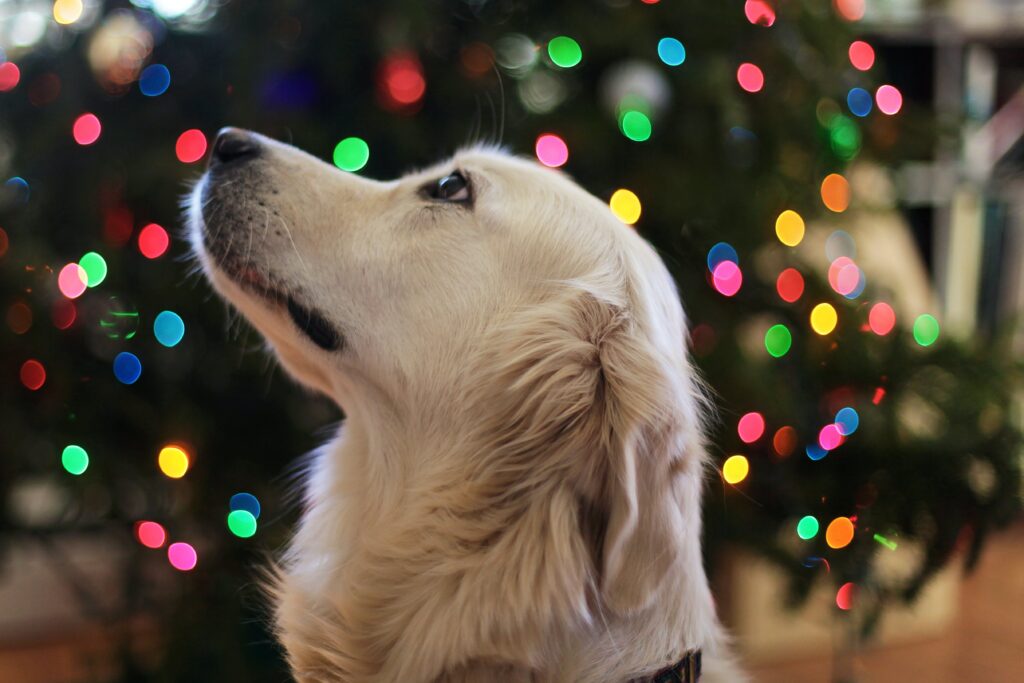Don’t let holiday hazards put your furry friend in danger! The holidays are a fun and festive time, but they also bring new dangers for our pets. From toxic plants to unhealthy treats, we’ve got tips on how to keep your dog safe this season. Share this blog post to spread the word and keep all the pets in your life happy and healthy this holiday season!
Foods Dangerous to Dogs
The following can be toxic to pets:
- Chocolate.
- Raisins
- Grapes.
- Macadamia Nuts.
- Garlic.
- Onion
- Alcohol
- Caffeinated Beverages.
- Bread dough.
- Sugar-Free Candy and Gum, containing the artificial sweetener xylitol.
Regular Foods
Despite tradition, bones should never be given to pets. Even beef, ham, and other “regular” foods that are not considered toxic can cause illness in pets. If your pet is a moocher, keep a saucer of his regular treats on the table to offer when he asks. He probably won’t know the difference!
New Treats and Toys
Even a pet-safe treat can cause stomach upset if it is new to your pet. Keep your dog safe by only offering one of these at a time. Ideally, you should separate the items by a few days. If your pet becomes ill after eating a holiday treat, it will be easier to trace the source and discontinue it. Also, check new toys for sharp edges, pieces that can be chewed off, or other potential hazards.
Plants
Hazardous plants include mistletoe, some evergreens (including some types of pine), and holly bushes and berries. Try to keep these plants away from pets, or at least supervise pets when dangerous plants are nearby.
Decorations
Tinsel, tree ornaments, ribbons, string, and garlands are some items that can be dangerous if eaten by pets. Keep these items away from pets — especially when pets are unattended. Don’t forget to cover any electrical cords or keep them out of reach.
Fire and Carbon Monoxide
Monitor pets near fireplaces, wood-burning stoves, candles, and portable heaters. Also, don’t forget to check smoke detectors and carbon monoxide detectors to make sure they are functioning properly. Space heaters, furnaces, and idling cars (in a garage) can increase the risk of carbon monoxide poisoning in pets and humans.
Christmas Trees
Monitor your pets when they are around your holiday tree. Pets may eat the needles (even from artificial trees) or drink water from the base of the tree, which can be toxic (especially if there are preservatives in it). Keep electrical cords and decorative lights out of reach, too.

